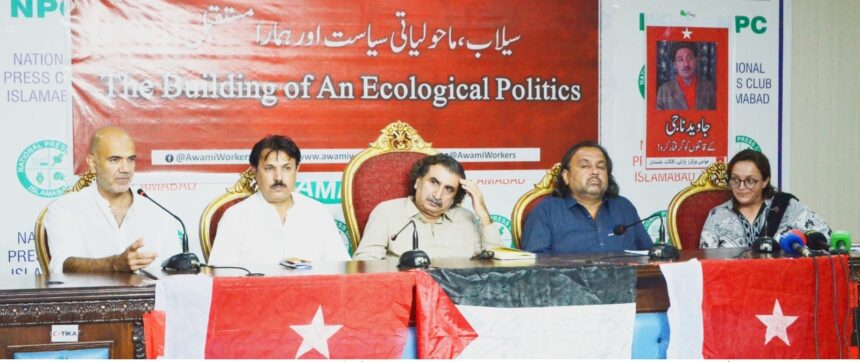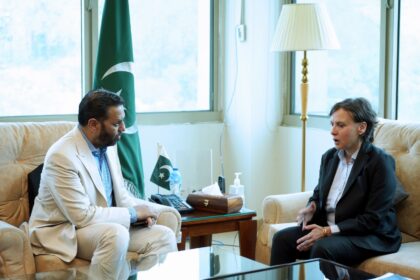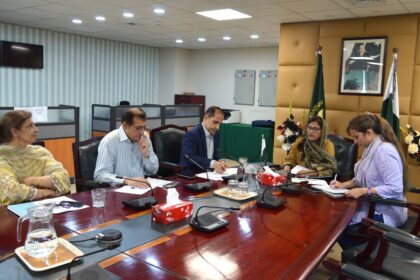Speakers at a seminar in Islamabad blamed the recent devastating floods on state policies, profit-driven development and unplanned construction rather than natural causes, and called for a new “environmental politics” that links ecological protection with workers’ rights, debt resistance and regional empowerment. They urged progressive forces to build a nationwide popular movement to challenge the development model they say fuels environmental destruction.
The seminar, titled “Environmental Crisis and State Policies,” was organized by the Awami Workers Party at the National Press Club and drew students, progressive activists, slum residents, intellectuals and urban citizens from the twin cities and across the country. Panelists included Bakhshal Thalho, Asim Sajjad, Baba Jan, Neelam Nagar, Zubair Torwali and Tuba Syed, who addressed the gathering.
Speakers argued that the catastrophic floods were not simply “natural” disasters but the predictable result of neoliberal development models, state-led profiteering and unregulated construction. While acknowledging that climate change and rising temperatures play a role, they said government and corporate interests have deepened vulnerability by promoting extractive and speculative projects that destroy ecosystems and displace communities.
They named specific actors they hold responsible for environmental degradation, including timber and real estate mafias, large hotel owners, mining companies and military construction agencies such as the Frontier Works Organization, the National Logistics Cell and initiatives branded as green tourism. According to speakers, these actors have driven unchecked construction and resource extraction with little regard for environmental or social costs.
The panel strongly criticized calls for building large dams in the wake of floods, calling such proposals environmentally harmful and socially destructive. Citing the Diamer-Bhasha Dam as an example, they warned that mega-dams lead to displacement of local populations, loss of agricultural land and increased dependence on external loans that ultimately burden working people.
Speakers also condemned what they described as the criminal silence of many political and intellectual circles, who they said spend more time pursuing power struggles and personal interests than addressing the environmental emergency. They accused the government of staging photo opportunities with flood victims while focusing on securing international climate aid rather than rethinking the development model that they contend created the crisis.
The seminar adopted a consensus that the solution must be an expansive “environmental politics” that goes beyond conserving natural systems to include defending workers’ rights, ending exploitation, opposing imperialist debt and empowering marginalized regions. Panelists emphasized the stakes for Pakistan’s youth, saying the country’s more than 160 million young people under 25 are directly affected by the worsening environmental crisis and require a comprehensive, progressive and democratic socio-economic model.
The event concluded with a pledge by progressive forces to continue campaigning for environmental justice and to strengthen a nationwide popular movement to challenge the exploitative systems driving ecological destruction.











